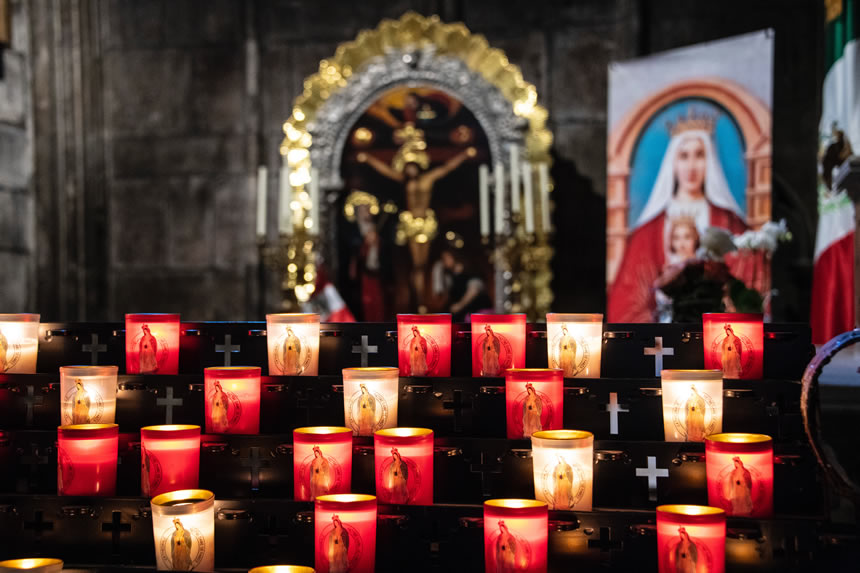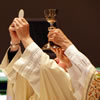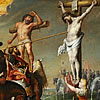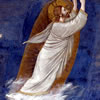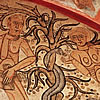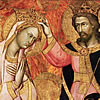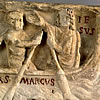Novenas are not Magical Incantations
Novenas are intrinsically part of the Catholic culture. Technically, these are prayers said for nine days, which is where the word “novena” comes from because the prefix “nov” means nine. Examples of these are the novena to Our Lady of Lourdes from Feb 2 to Feb 10, and also the novena to the Sacred Heart of Jesus on nine first Fridays. To some, it has become a “perpetual novena” when they say it every day, every week, or every month.
These novenas are usually said when one has a special petition. It is always good to ask for help from Mary and the saints for they are face-to-face with our Lord and can intercede for us. The tragedy comes when we treat these prayers as if they were magical incantations. What’s the difference?
In a petition prayer, we lift our concerns to God (sometimes through the intercession of the saints) and trust God will answer our prayers as he sees fit. A magical incantation is something we say expecting to get what we want. It isn’t wrong to expect God to give us what we want, but the difference is in the disposition. In prayer, we leave it up to God to know what is good for us; when we treat prayer as a magical incantation, we expect God to give us what we want because we “paid” for it by our prayers as if it were a contract.
We have to be careful not to treat novenas this way. Sometimes we read on social media about this or that novena that “guarantees results” or is a “powerful novena.” The idea is if you pray this, you will absolutely get what you want. This is contradictory to what prayer is. In fact, this is what Christ warned against when he said, “in praying, do not use vain repetition like pagans, who think they will be heard because of their many words.” (Mat 6:7)
The warning was not about repetitious prayer. That would be absurd because Christ himself repeated the same prayers in Gethsemane. (Matthew 26:36-44) Likewise in Revelation, there are creatures who repeat the same prayer non-stop. (Revelation 4:8) Since there is repetitious prayer in Scripture, repetition is not a bad thing. What Christ was warning is repeating prayer like the pagans. He was referring to how pagans were fixated about getting a ritual correct so that if performed flawlessly they could manipulate their gods to give them what they wanted. If the one performing the ritual stuttered, yawned, hiccoughed, or even coughed during the rite, he had to repeat it. The inkling is if they did it correctly, their gods had to give them what they want. It is like a business deal: I did this, so you give me that. This is contrary to Christian prayer. Prayer is not supposed to change God’s will to fit ours, but so we will change our will to fit God’s. Neither is Christian prayer a currency used in buying favors from God.
There is no problem in “nagging” God repeatedly for the same thing he hasn’t given us yet, but it should be done with a sense of trust that God will give us only good things. We should also have the humility to accept that sometimes his answer is no. Isn’t this what Christ taught us about God giving us only good things when he said, “Which one of you would hand his son a stone when he asks for a loaf of bread, or a snake when he asks for fish? If you then, who are wicked, know how to give good gifts to your children, how much more will your heavenly Father give you good things to those who ask him.” The key then is to ask for “good things” and it shall be given. The problem is that our knowledge is finite and we might be asking something that might not be good for us. The Christian disposition then is to have faith that our all-knowing and loving Father recognizes what is good for us and gives us only what is good for us.
So, novenas, pilgrimages, sacrifices or promises in “exchange” for something from God is healthy for as long as our disposition is not getting God to do what we want, but getting God to do what he wants.
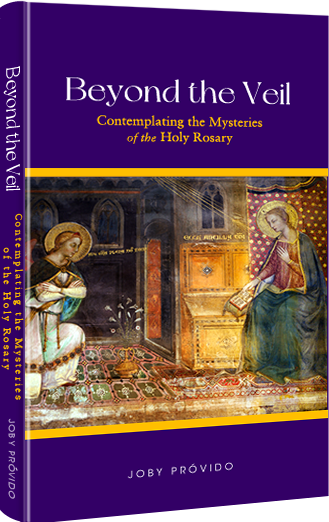
Beyond the Veil
Contemplating the Mysteries of the Holy Rosary
Prayer giants like Pope St. John Paul II, Pope Paul VI, Bl. Archbishop Fulton Sheen, and Bishop Robert Baron advocate that we contemplate on the mysteries of the rosary while we say the vocal prayers. Unfortunately, there are not many books that teach us how to do this. Beyond the Veil comes to the rescue by suggesting seven ways we can pray the rosary the way it was intended.
The larger part of the book offers mental images for each of the mysteries we can use in our contemplation, for how can we imagine the scenes in the rosary if we don't know about them?
Get your copy now either in Hardbound, Paperback, or Kindle

A Sky Full of Stars
Know Our Lady through her Titles in the Litany
The Church helps us understand who Mary is by honoring her with different titles in the Litany of the Blessed Virgin Mary. Unfortunately, over time and difference of culture, we might not grasp what it is the Church is ascribing to her and lose that opportinity to get to know her.
In A Sky Full of Stars, each title of the Litany is explained so we get know Mary more and fall in love with her all over again.
Get your copy now either in Hardbound, Paperback, or Kindle

100 Things Every Catholic Should Know
Whether or not you are new to the Catholic Church, or struggling, or lapsed, or dynamically involved, this book will enlighten you with the essentials of the Faith that have been handed down to us by the apostles.
Each of the 100 topics is easy to read and distilled into bite-sized portions. Through cross-referencing, the book also shows how the topics are interrelated. Those who are new to the Faith will find this book an edifying handy reference, and those who have simply forgotten will find it a great review material that might spark a new love for God and religion.
Get your copy now either in Hardbound, Paperback, or Kindle
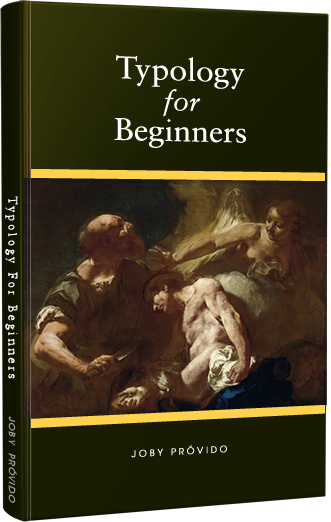
Typology for Beginners
A Catholic Perspective on understanding the New Testament through the Old Testament
First-century Jews converted to Christianity in droves because of the way the New Testament was written to show Jesus was the Messiah promised by the Old Testament. We also learn about how Mary is the New Eve and the Ark of the Covenant in the way the writers portray her.
Through typology, the patterns that connect the Old and New Testaments make the Bible stories more accessible so that one becomes excited to read Sacred Scripture again.
Get your copy now either in Hardbound, Paperback, or Kindle


